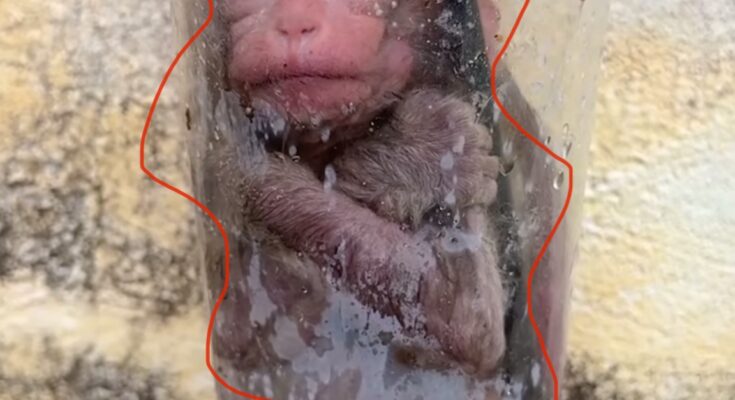Fever in baby monkeys is often a sign that their young immune systems are fighting infections, stress, or environmental challenges. Because infant primates are delicate and highly sensitive to their surroundings, prevention becomes a crucial part of proper care—whether in rescue centers, rehabilitation facilities, small zoos, or responsible private environments. Below are several effective methods to help ensure baby monkeys remain healthy and less prone to developing fever.
1. Maintain a Clean and Hygienic Environment
Baby monkeys are extremely vulnerable to bacterial and viral infections. Keeping their enclosure clean is one of the most important steps in fever prevention. Bedding should be washed regularly, leftover food must be removed quickly, and surfaces disinfected with safe, non-toxic solutions. Caretakers should also practice good hygiene by washing their hands before and after handling the babies. A clean habitat reduces exposure to harmful pathogens and significantly lowers the risk of illness.
2. Provide Proper Temperature Control
Like human infants, baby monkeys struggle to regulate their body temperature. Sudden temperature drops or prolonged exposure to cold can easily trigger fever. Their enclosure should be kept warm, especially at night. For newborns or very young monkeys, using heating pads, heat lamps, or insulated bedding can help stabilize their body temperature. Conversely, in hot climates, adequate ventilation and shade are essential to prevent heat stress, which can also lead to fever.
3. Ensure Nutritious and Age-Appropriate Diets
A well-balanced diet strengthens immunity and supports healthy development. Baby monkeys typically require milk formulas specially designed for primates, followed gradually by soft fruits, vegetables, and protein sources. Malnutrition or sudden dietary changes can weaken immunity and make them more prone to infections. Providing clean drinking water at all times is equally important to avoid dehydration, which can complicate fevers.
4. Reduce Stress and Overhandling
Stress plays a major role in weakening the immune system of young primates. Loud noises, constant disturbances, frequent handling, or separation anxiety can all make baby monkeys susceptible to illness. Caregivers should create a calm environment, limit unnecessary handling, and maintain a predictable daily routine. Providing soft toys, gentle enrichment activities, and companion bonding can also reduce stress-related health issues.
5. Regular Veterinary Checkups and Early Monitoring
Routine health examinations help detect underlying issues before they escalate. A primate veterinarian can recommend vaccinations, parasite control measures, and nutritional adjustments. Caretakers should also watch for early signs of fever such as lethargy, reduced appetite, shivering, or warm skin. Catching symptoms at the earliest stage allows for quick intervention and prevents complications.
6. Strengthen Immunity Through Good Care Practices
Adequate sleep, clean living conditions, and emotional comfort all contribute to a stronger immune response. Since baby monkeys rely heavily on their caregivers, consistent and compassionate care helps keep their bodies resilient against infections that can cause fever.
Conclusion
Preventing fever in baby monkeys requires a combination of cleanliness, proper nutrition, environmental control, stress reduction, and regular veterinary care. By ensuring their physical and emotional needs are met, caregivers can help these young primates grow healthy, strong, and less vulnerable to illness.



